



If you ever find yourself wandering through the heart of India,Gwalior is one of those places that quietly grabs hold of you. The moment you step into the city,there’s this palpable mix of history and everyday life buzzing around you. The air carries a faint scent of spices from street vendors,mingling with the earthy aroma of ancient stone walls. Gwalior isn’t just about its grand fort perched dramatically on a hill—it’s the way the city hums with stories,from the echo of classical ragas drifting out of old music schools to the chatter of locals sipping chai at roadside stalls. Walking through the narrow lanes,you’ll see a tapestry of colors:vibrant saris fluttering in the breeze,intricate carvings on centuries-old temples,and the lively markets where fresh fruits and handmade crafts spill onto the streets. The city’s character is a blend of regal pride and warm hospitality. People here are proud of their heritage but also incredibly welcoming,ready to share tales of the past or recommend the best local snacks like the sweet,syrupy jalebis or spicy kachoris. What makes Gwalior truly special is how it balances the old and the new. You can explore the majestic palaces and forts that whisper of bygone eras,then find yourself in a bustling café,sipping strong coffee while watching the world go by. It’s a place that invites you to slow down,soak in the layers of culture,and feel connected to a living history that’s still very much alive.
The information on this page is currently being reviewed by Tripkliq and should be used as a guide only
Eng word: Hello
Eng pronunciation: Namaste
Local language: नमस्ते
Eng word: Goodbye
Eng pronunciation: Alvida
Local language: अलविदा
Eng word: Thank you
Eng pronunciation: Dhanyavaad
Local language: धन्यवाद
Eng word: How much
Eng pronunciation: Kitna
Local language: कितना
Eng word: Toilet
Eng pronunciation: Shauchalay
Local language: शौचालय
Eng word: Help me
Eng pronunciation: Meri madad karo
Local language: मेरी मदद करो
Eng word: Yes
Eng pronunciation: Haan
Local language: हाँ
Eng word: No
Eng pronunciation: Nahi
Local language: नहीं
Eng word: Excuse me
Eng pronunciation: Maaf kijiye
Local language: माफ़ कीजिये
Gwalior has a rich history dating back to ancient times, with mentions in the Mahabharata and other ancient texts.
Gwalior has been ruled by several dynasties including the Tomars, Mughals, Marathas, and Scindias.
Gwalior's strategic location on the Delhi-Mumbai route made it an important city in the medieval period.
The Gwalior Fort, built in the 8th century, is a major landmark and a symbol of the city's rich history.
Gwalior is famous for being the birthplace of the legendary musician Tansen, one of the 'Navratnas' of Akbar's court.
Gwalior played a significant role in India's freedom struggle, with leaders like Rani Lakshmi Bai and Tatya Tope being associated with the city.
The Jauhar Kund in Gwalior Fort is a historical site where Rajput women performed 'jauhar' (self-immolation) to avoid capture by invaders.
The Man Singh Palace inside Gwalior Fort is a fine example of Mughal architecture and is a popular tourist attraction.
The tomb of Sufi saint Mohammad Ghaus is a prominent religious site in Gwalior and is visited by devotees of all faiths.
In Gwalior, the most common Power Adaptor is Type C, Type D.


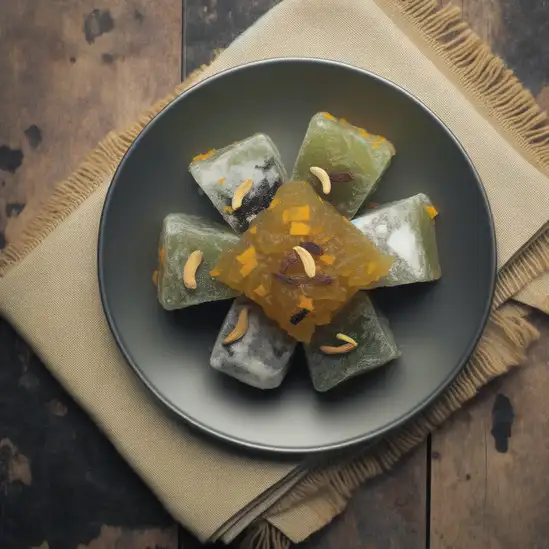
A sweet made from ash gourd, cooked in sugar syrup, often flavored with cardamom and served as a popular dessert.
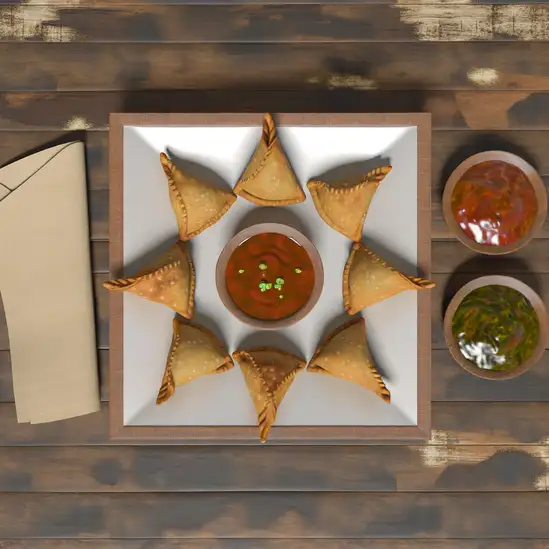
A popular snack made of a crispy pastry filled with spiced potatoes and peas, usually served with mint or tamarind chutney.
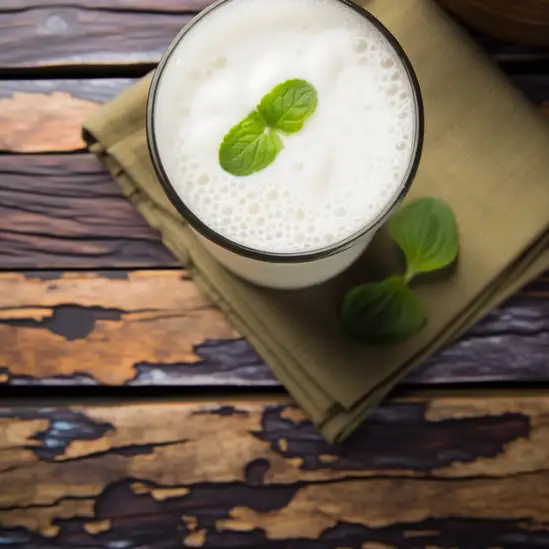
A refreshing yogurt-based drink, often flavored with fruits or spices, perfect for cooling down in the hot weather.
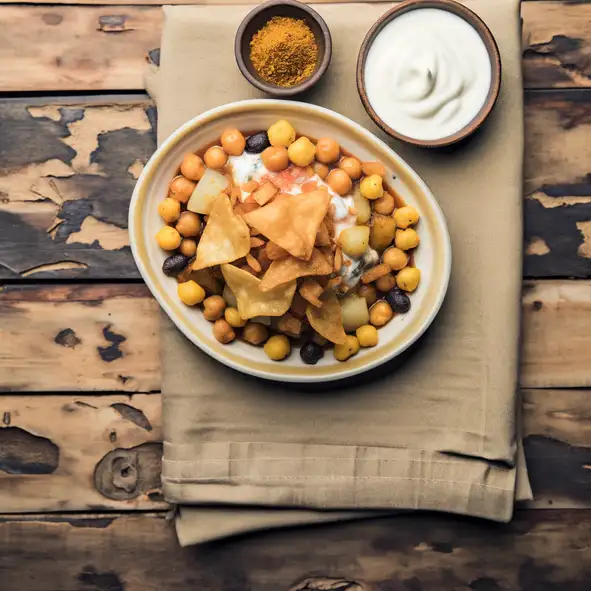
A popular street food snack that includes a variety of ingredients like potatoes, chickpeas, yogurt, and tangy chutneys, creating a burst of flavors.
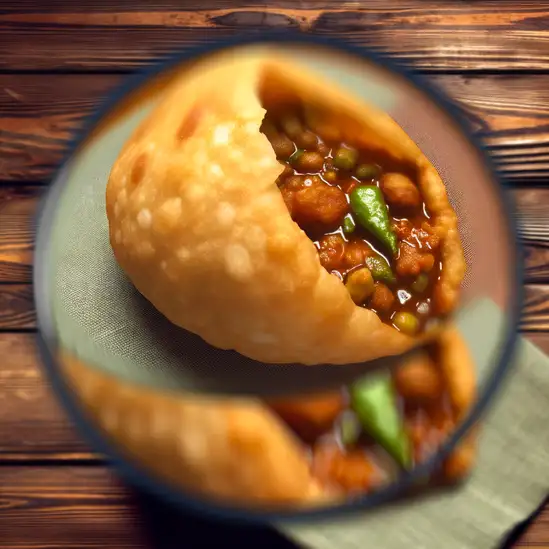
Deep-fried pastry filled with a spicy mixture of lentils and spices, often served with tangy tamarind chutney.

A fragrant rice dish made with marinated meat, spices, and saffron, known for its rich flavors and unique cooking style.

A savory dish made from grated corn cooked with spices, milk, and garnished with coriander, offering a delightful taste of local flavors.

A traditional dish consisting of wheat dough balls that are baked and then dipped in ghee, served with spicy lentil curry.
Imagine stepping into a city that pulses with energy,where every street corner hums with life and stories waiting to be discovered—that’s Mumbai for you. The moment you arrive,you’re wrapped in a vibrant tapestry of sounds:the rhythmic clatter of local trains,the lively chatter of street vendors,and the distant call of temple bells blending with honking rickshaws. The air carries a mix of spices from roadside stalls,mingling with the salty breeze from the Arabian Sea,creating an intoxicating scent that’s uniquely Mumbai.
Walking through its bustling lanes,you’ll see a kaleidoscope of colors—bright saris fluttering in the wind,intricate colonial architecture standing proudly beside sleek skyscrapers,and street art that tells tales of the city’s soul. Mumbai’s character is a beautiful contradiction:it’s fast-paced yet welcoming,chaotic yet deeply rooted in tradition. The city’s heartbeat is its people—dreamers,artists,and entrepreneurs who wear their resilience and warmth like a badge of honor.
And then there’s the food—oh,the food! From the tangy,spicy street-side vada pav that feels like a warm hug,to the rich,aromatic biryanis and fresh seafood by the sea,every bite is a celebration of flavors. Mumbai invites you to lose yourself in its maze of neighborhoods,each with its own rhythm and charm,promising moments of surprise and connection. It’s not just a place to visit; it’s a city that stays with you long after you’ve left.
A coastal city in Kerala,Kochi is famous for its proximity to the stunning islands of the backwaters,including Willingdon Island,and offers a mix of colonial heritage,spice markets,and serene landscapes.
ExploreIf you ever find yourself craving a place where the ocean breeze carries stories of adventure and the rhythm of waves sets your pace,Port Blair is where you want to be. This city feels like a gentle invitation to slow down and soak in the raw beauty of island life. The moment you step off the ferry or plane,the salty air mingled with the scent of tropical flowers wraps around you like a warm hug. Palm trees sway lazily against a backdrop of turquoise waters,and the chatter of locals blends with the distant call of seabirds,creating a soundtrack that’s both lively and soothing.
Port Blair isn’t just a gateway to the Andaman Islands; it’s a place where history whispers through the walls of the Cellular Jail,a somber yet inspiring reminder of India’s past. But beyond its historical weight,the city pulses with a laid-back charm—colorful markets burst with fresh seafood,exotic fruits,and spices that tease your senses. Grab a plate of freshly caught fish grilled with local herbs,and you’ll taste the ocean’s essence in every bite.
What makes Port Blair truly special is its blend of cultures and the warmth of its people. You’ll find a mix of indigenous traditions and influences from across India,all coexisting in a relaxed,welcoming vibe. Whether you’re wandering along Corbyn’s Cove Beach at sunset or chatting with fishermen mending their nets,there’s a genuine friendliness here that makes you feel like you belong. It’s a place that invites you to explore,reflect,and simply be.
Imagine stepping into a place where the sun kisses your skin,the salty breeze carries the laughter of beachside chatter,and every corner hums with a laid-back yet vibrant energy—that’s North Goa for you. It’s a lively patchwork of golden sands,swaying palms,and colorful shacks where the aroma of sizzling seafood mingles with the faint scent of frangipani flowers. Whether you’re wandering through the bustling markets of Anjuna or watching the sun dip behind the waves at Calangute,there’s a rhythm here that feels both timeless and alive.
What really makes North Goa special is its blend of cultures and carefree spirit. You’ll find Portuguese-influenced architecture standing proudly alongside lively street art,while the music—from mellow acoustic sets to pulsing electronic beats—drifts through the air,inviting you to join in. The locals,warm and welcoming,add a genuine charm that makes you feel like you’re part of a big,sun-soaked family.
And the flavors! Freshly caught fish grilled with spices that tease your taste buds,tangy Goan curries,and sweet,creamy feni that’s perfect for toasting to new adventures. As night falls,the beach transforms into a playground of bonfires and music,where stories flow as freely as the ocean breeze. North Goa isn’t just a destination; it’s a feeling—a place that stays with you long after you’ve left.
A charming coastal city with French colonial architecture,Pondicherry is close to Paradise Island and offers serene beaches,spiritual retreats,and a unique blend of Indian and French cultures.
ExploreIf you ever find yourself wandering through the southern tip of India,Thiruvananthapuram will wrap around you like a warm,familiar hug. The city hums with a gentle rhythm—part ancient tradition,part vibrant modern life—that instantly makes you feel at home. Imagine walking along streets lined with swaying coconut palms,the salty breeze from the nearby Arabian Sea mingling with the rich aroma of spices and jasmine wafting from bustling markets. It’s a place where temple bells chime softly in the morning,blending seamlessly with the chatter of locals and the distant crash of waves.
What’s truly captivating about Thiruvananthapuram is its effortless balance between calm and energy. You can spend your mornings exploring the majestic Padmanabhaswamy Temple,its intricate carvings telling stories centuries old,then lose yourself in the colorful chaos of Chalai Market,where vendors call out,selling everything from fresh mangoes to handwoven fabrics. The city’s soul is deeply rooted in its culture—classical dance performances,traditional Kerala cuisine bursting with coconut and curry leaves,and the warm smiles of people who take pride in their heritage.
Evenings here are magical. Head to the nearby Kovalam Beach,where the sun dips low,painting the sky in hues of orange and pink,and the sound of waves lapping against the shore feels like nature’s lullaby. Whether you’re savoring a plate of spicy fish curry or simply sitting by the shore,Thiruvananthapuram invites you to slow down,breathe deeply,and soak in a world that’s both timeless and alive.
Children or adults may approach tourists claiming to be in dire need, but this is often organized begging targeting foreigners.
Some individuals or small shops may offer currency exchange services but provide incorrect rates or counterfeit currency.
Scammers may approach tourists asking for donations to fake charities or causes, often using emotional stories to manipulate them.
Scammers may sell counterfeit tickets to attractions like Gwalior Fort or Jai Vilas Palace, which are invalid upon entry.
Individuals posing as official tour guides may approach tourists and offer their services. They often charge exorbitant fees and provide little to no value.
Restaurants or street vendors near tourist spots may charge significantly higher prices for food and drinks when they identify someone as a tourist.
Drivers may quote inflated prices for rides, especially to popular tourist destinations like Gwalior Fort, taking advantage of tourists unfamiliar with local rates.
Local photographers may offer to take pictures for tourists and later demand an unreasonable amount of money for their services.
Tourists may be taken to specific shops by guides or drivers where prices are heavily marked up, and commissions are given to the referrer.
The possession, sale, and consumption of narcotic drugs and psychotropic substances are strictly prohibited under the Narcotic Drugs and Psychotropic Substances Act,1985. This applies to Gwalior as well. Penalties for violations can be severe, including imprisonment and fines. Tourists should avoid any involvement with illegal drugs.
Smoking in public places is prohibited in Gwalior, as per the nationwide Cigarettes and Other Tobacco Products Act (COTPA),2003. Public places include government buildings, public transport, hospitals, educational institutions, and restaurants. Designated smoking areas may be available in larger establishments like hotels. Violators may face fines.
Vaping is banned in India, including Gwalior, under the Prohibition of Electronic Cigarettes Act,2019. The sale, manufacture, import, export, transport, and advertisement of e-cigarettes are prohibited. Tourists should avoid carrying or using vaping devices to avoid legal issues.
What are other people saying about Gwalior?
Recent Social posts about Gwalior
There is nothing to show you for now.